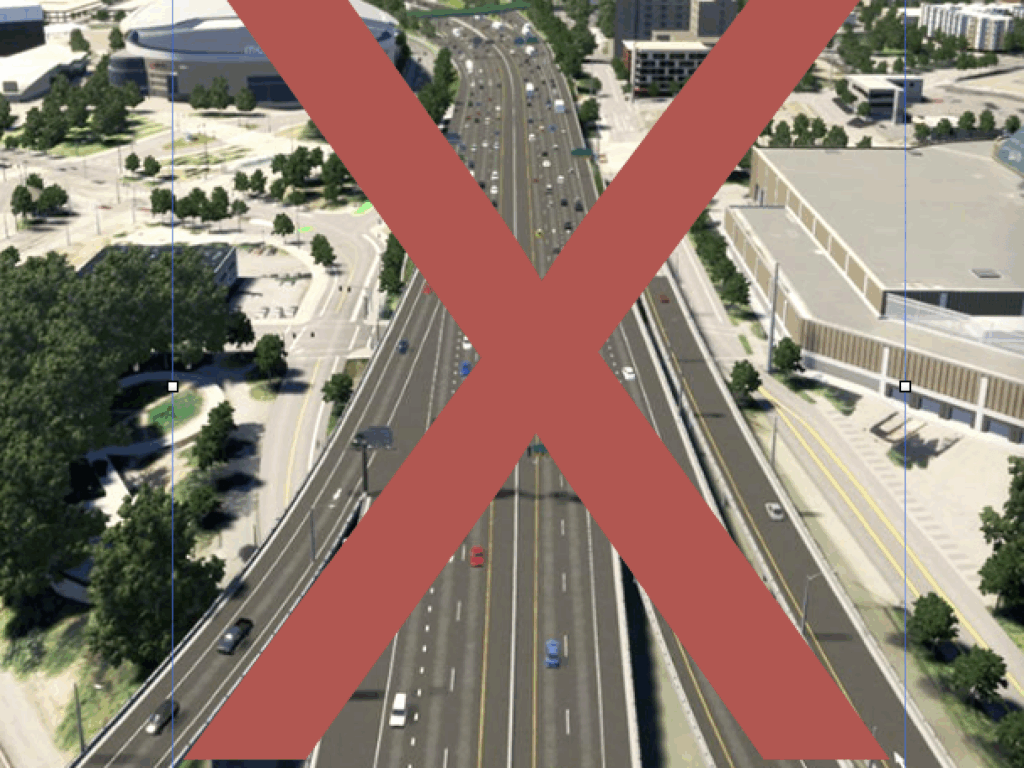California is the first in the nation to establish a Universal Basic Income . . . for cars
One of the most widely discussed alternatives for tackling poverty and inequality head-on is the idea of a “Universal Basic Income”—a payment made to every household to assure it has enough for basic living expenses. While there have been a few experiments and a lot of political hyperbole, it hasn’t really been tried at scale. But now, California is on the verge of enacting a Universal Basic Income, but instead of being for people, it’s for cars.
It’s a symptom of our deep car dependence thant faced with somewhat higher gas prices (still lower, in inflation-adjusted terms than a decade ago), politicians are falling all over themselves to insulate cars and driving from their real costs. It speaks volumes that we’re so quick to allocate resources to cars and so reticent to have similar energy when it comes to tackling poverty.
High gas prices are a potent political issue for car-dependent Americans, and that’s prompted elected officials to scramble to come up with ways to ease the pain. California Governor Gavin Newsom has proposed giving California car-owners a $400 debit card for each car they own, at a total cost of an estimated $9 billion. It’s effectively a universal basic income (UBI), but for cars.
In an ironic parallel, the City of Oakland is reporting the results of its own recent experiment with a kind of UBI for transportation. Oakland gave $500 households $300 debit cards that they could spend on a range of transportation services, like bus travel, bikes, scooters and ride-hailed trips. They then surveyed participants to see how their travel patterns changed. Overall, about 40 percent of participating households reported reducing their single occupancy car trips. The idea of a flexible transportation allowance is great way to directly address the equity concerns of our transportation system, especially as we begin using road pricing as a way to make the transportation system function more efficiently. But it’s striking that while a universal basic mobility allowance merits only a tiny and tentative $150,000 experiment, a universal car allowance worth nearly $10 billion is likely to move forward with little, if any consideration of its social and environmental effects.
Other states have taken a different approach to reducing transport costs, with a similar car bias. New York Governor Kathy Hochul is proposing a gas tax holiday (which may or may not save motorists money, depending on whether oil companies pass along the savings to customers). Of course, the cost of paying for maintaining the state’s roads will just be shifted to others, so the savings mostly an illusion.
There’s a good argument that Newsom’s debit cards directly undermine the state’s climate goals, especially by handing out money based on the number of cars a household owns. Both the California and New York plans give fiscal relief to car owners. You have to own a car to get a California debit cards, and somewhat perversely, households with two cars (who tend to have higher incomes) get twice as much relief as families with a single car. But the incentive effects of the tax cut are even worse than California’s debit card approach: people will save in proportion to how much gas they buy. Those who don’t drive much, drive fuel efficient vehicles, or who don’t own or drive cars at all, will get no relief. The big winners will be those who own fuel inefficient vehicles and drive a lot. At least with the California debit card approach, families don’t have to buy more gasoline to get more relief. They can spend the $400 on anything else they like, including for example, a bus pass or part of the purchase price of a new bike.
Gas tax holidays and California’s universal basic income policy for cars are emblematic of the fundamental inequity of our current transportation policy. Measures, like a universal basic mobility allowance, which would help those most in need and incentivize more sustainable transportation are subject to protracted experimentation at trivial scale. Meanwhile, rising gas prices prompt sweeping and ill-considered policies that will send most benefits to those who drive the most, and which will further incentivize more driving and environmental destruction.

